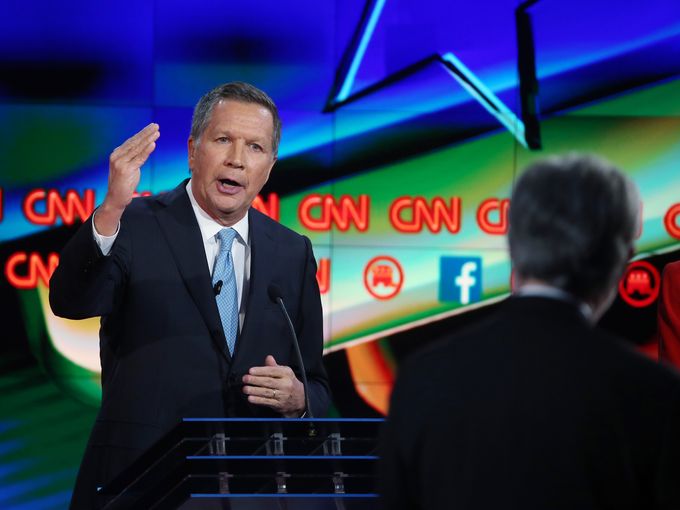
W.J. Astore
A common belief shared by U.S. political pundits and a compliant and complicit U.S. media is that America never chooses its wars: it’s dragged into them. Last October, I read an article in the “liberal” New York Times that caught the mood perfectly. It worried the U.S. was being “sucked into” wars in the Middle East, drawn in, inexorably, by forces the world’s lone superpower couldn’t control. As if America’s leaders had no choice. As if they (and we) couldn’t walk away whenever we so chose.
What foolishness. By choice the U.S. has been meddling in the greater Middle East for decades (consider the CIA-orchestrated coup in Iran in 1953, to cite only one example). America is not being “sucked in” by uncontrollable forces. Our leaders choose to meddle – most often in extremely violent and prejudicial ways – in regions of the world they understand poorly, if at all
And poor understanding comes despite a massive intelligence complex featuring 17 agencies chewing through $70 billion a year. Indeed, according to a Washington Post study, the U.S. has nearly 1300 government organizations and nearly 2000 private companies devoted to counterterrorism, homeland security, and intelligence.
Let’s look at a tiny piece of that complex: the presence of 1500 intel operatives working daily to provide “actionable intelligence” for U.S. Central Command (CENTCOM) in Florida. Roughly the equivalent of a military regiment of high-priced intelligence operatives sits on its collective butt in Florida, gazing at computer screens, producing its own fog of war about the Middle East.
Indeed, much of war, American style has degenerated into watching people killed at a distance. Think of video footage from drone strikes that call to mind snuff films. Want explosive climaxes? As Peter Van Buren noted, they’ve got the war porn for you.
War, American style features lots of bragging about the military (We’re Number One!), lots of grinding in wars that last forever, but no satisfying climaxes, whether in Vietnam or Afghanistan or Iraq or Libya. Lots of steroidal militarism, but no clear military victories.
Donald Trump had a fleeting moment of sanity when he said in the last presidential debate that the U.S. after 9/11 wasted three or four trillion dollars on wars with nothing to show for it. That money should have been invested in America instead, he said, which caused Carly Fiorina to denounce him for sounding like Barack Obama! Yes, Obama the “feckless weakling,” according to that man-burger, Chris Christie.
Ergo I can suggest one safe bet for 2016: more war. At least we’re number one at something.
Update: I added this to the comments section below, but will also put it here for new readers.
Ten Features of War, American Style
1. Wars are no longer declared by Congress, and thus they are not waged in the name of the people.
2. Wars are now fought by “warriors” rather than by citizen-soldiers. Citizens are excluded from wars by choice and by design; they are reduced to cheerleaders and told to go shopping.
3. Wars no longer have a discernible end point. (How do you end a war on terror?)
4. Wars are supported by both parties and by the corporate-owned media as well. Dissenters to war are pushed to the margins and dismissed as unserious and/or misguided and/or unpatriotic.
5. War damage is confined largely to foreigners; American life continues on, undisturbed by war.
6. Major corporations continue to profit from war; similarly, the USA remains dominant in the world arms trade.
7. “Security” has become the byword of America, a security that is linked to a strong military presence overseas and a strong police presence at home. “Security” has become synonymous with guns and prisons in Lockdown USA. In other words, a war mentality has spread deeply into American consciousness, so much so that few people recognize its signs anymore. (Peace, love, understanding? Get thee behind me, Hippie!)
8. Related to (7): The celebration of all things military. Baseball uniforms with camouflage. Camouflage headsets for football coaches. Constant celebrations of military “heroes” in “private” venues, some of them paid for using public (taxpayers’) dollars.
9. No need for elites to risk their sons and daughters in war (no draft), thus apathy. When they do express some concern, they’re largely unable to critique war and U.S. foreign policy since they’ve been trained to defer to “experts.” Those experts? Mostly retired military officers, many with conflicts of interest, e.g. they work for defense contractors that profit from continuous war.
10. Fear. Fear is both a product of war and a generator of it. Fear is constantly stoked in the USA.
Chris Hedges, of course, is superb on this general question. Read his “War Is A Force that Gives Us Meaning.”



 U.S. troops in Mosul, Iraq in 2007. A foreign presence to Iraqis
U.S. troops in Mosul, Iraq in 2007. A foreign presence to Iraqis






